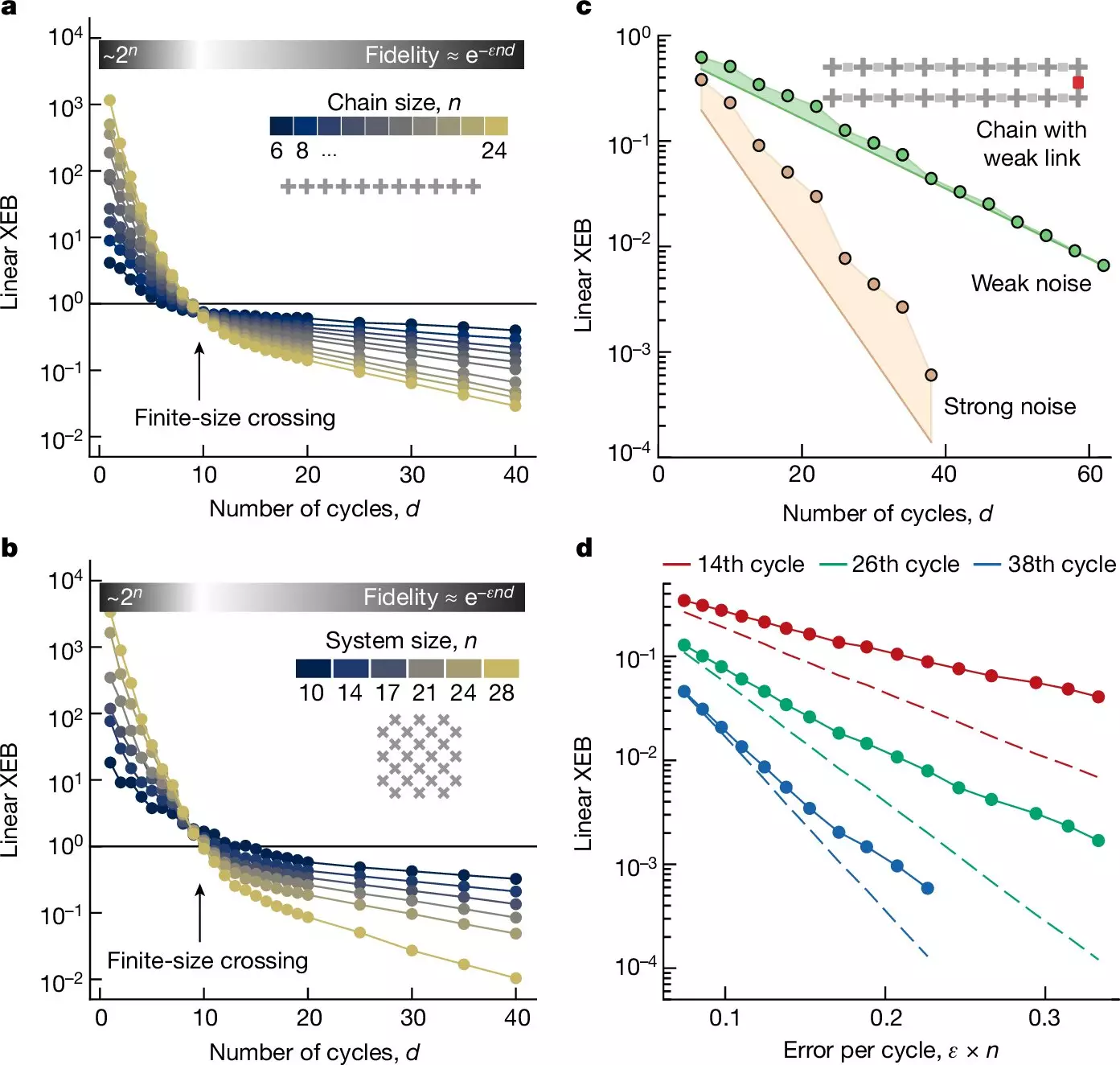Quantum computing holds immense promise for revolutionizing the way we process information. However, the road to realizing this potential has been riddled with challenges. Engineers and physicists have long grappled with the inherent noise and errors that plague quantum systems. Recent advancements, particularly from a dedicated team at Google Research, have illuminated a viable pathway toward overcoming these fundamental hurdles, specifically through the manipulation of environmental noise.
For quantum computers to outperform their classical counterparts, they must navigate the treacherous landscape of noise. Environmental noise—stemming from sources like temperature fluctuations, magnetic interference, and cosmic radiation—introduces errors that compromise the integrity of quantum computations. Researchers have focused extensively on error correction techniques to mitigate these influences, with the ultimate goal of achieving error rates low enough to harness what is termed “quantum advantage.” This term describes a scenario where quantum computers can resolve problems infeasible for classical machines to address, a significant leap in capability.
In a recent groundbreaking study published in the prestigious journal Nature, a team at Google Research reported a significant breakthrough by employing a novel strategy to reduce noise interference during quantum computations on their Sycamore quantum chip. The researchers meticulously optimized the operational conditions of the chip, which involved placing it in environments close to absolute zero—effectively cooling it to minimize noise impact.
This subtle adjustment yielded impressive results: the error rate was lowered from 99.4% to an astounding 99.7%. This seemingly modest enhancement in precision translated to substantial improvements in computational efficiency. By achieving these error reduction benchmarks, the Sycamore chip demonstrated its capability to outpace classical computers when performing random circuit sampling (RCS), a test designed to assess the reliability and performance of computational systems through the generation of random numbers.
Implications for the Future of Quantum Computing
The implications of this achievement are profound. As researchers have historically struggled to construct a genuinely useful quantum computer, Google’s findings signify a shift towards possible practical applications. The ability to run complex algorithms that would traditionally take supercomputers eons to complete is now inching closer to reality. By successfully reducing noise, Google Research has set a compelling precedent for future quantum innovations, challenging researchers worldwide to explore similar strategies to improve quantum systems.
As the field of quantum computing continues to evolve, the innovative steps taken by the Google research team underscore a potential revolution within computational technologies. The reduction of noise serves not only as a critical technical achievement but also reinforces the notion that a future where quantum computers can perform tasks beyond the reach of classical systems is not merely a distant dream but an attainable reality. The path laid out by these advancements paves the way for further exploration and innovation, heralding an era where quantum computing can finally fulfill its transformative promise.

